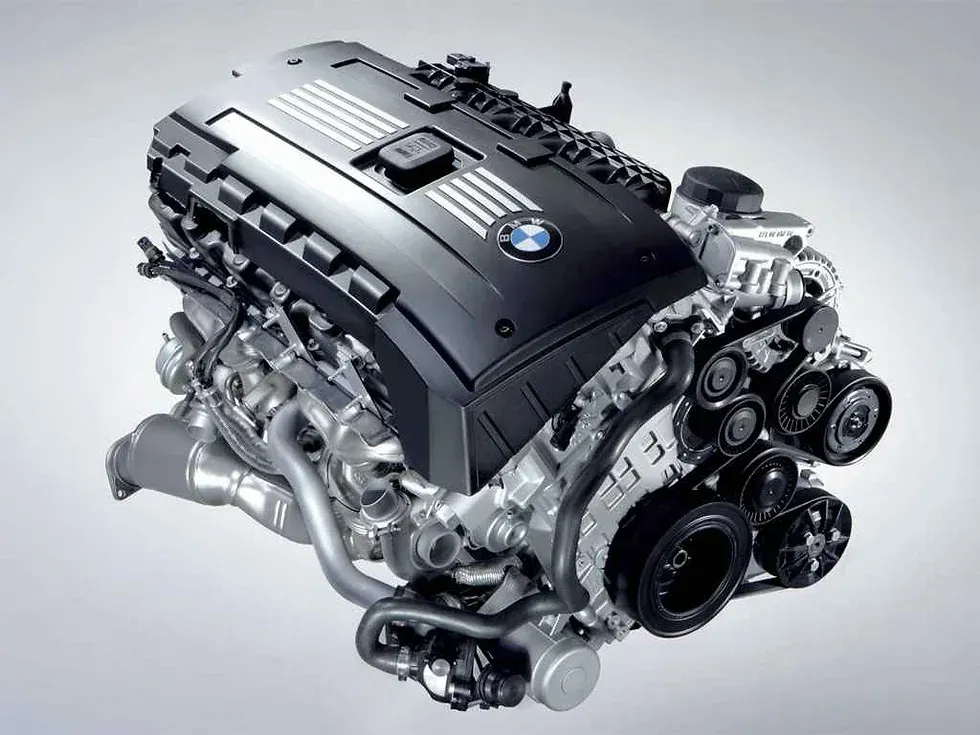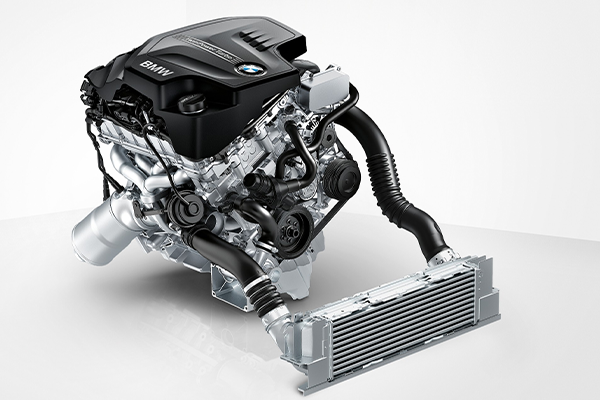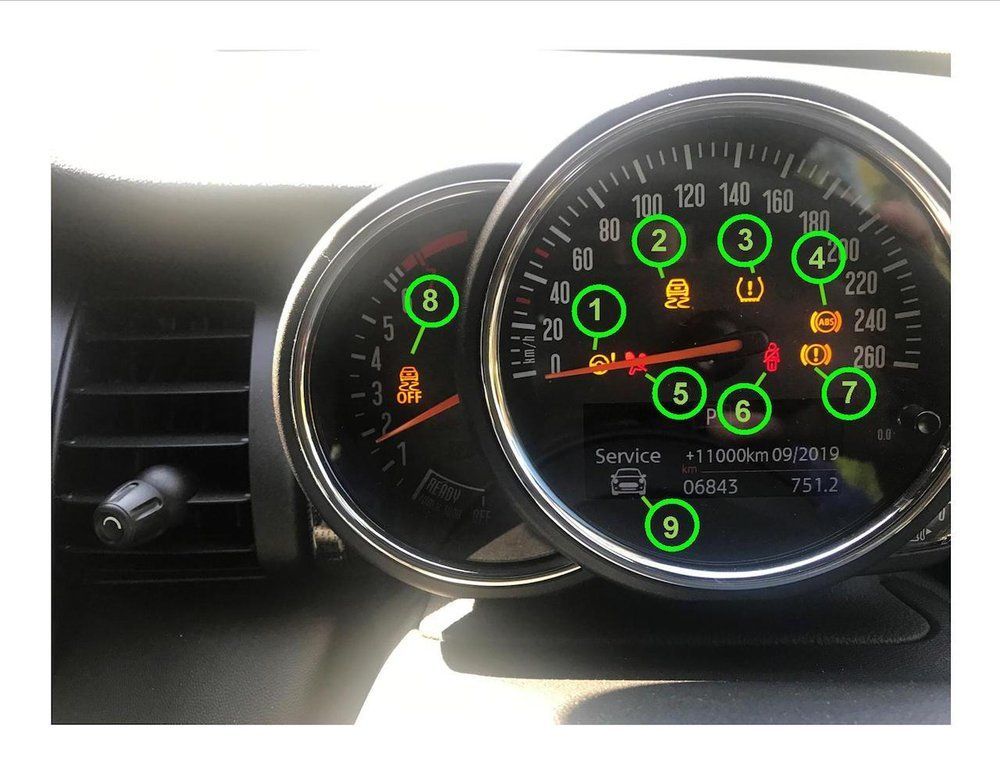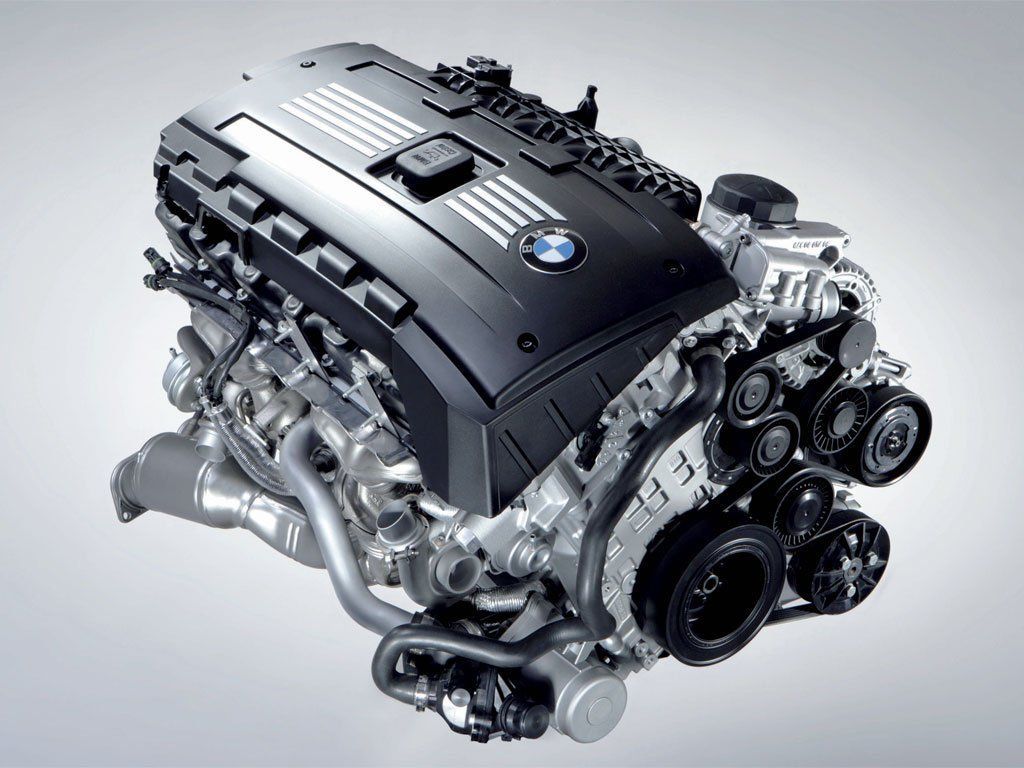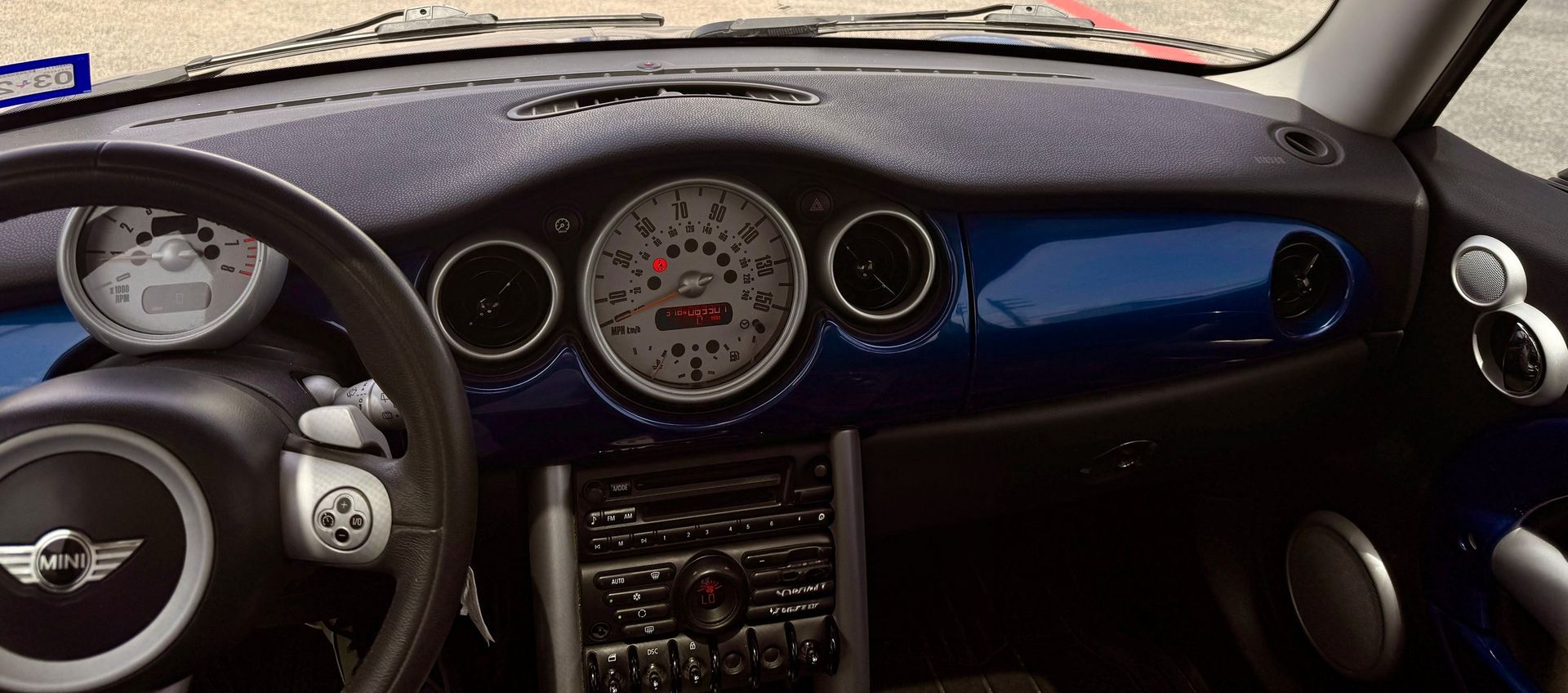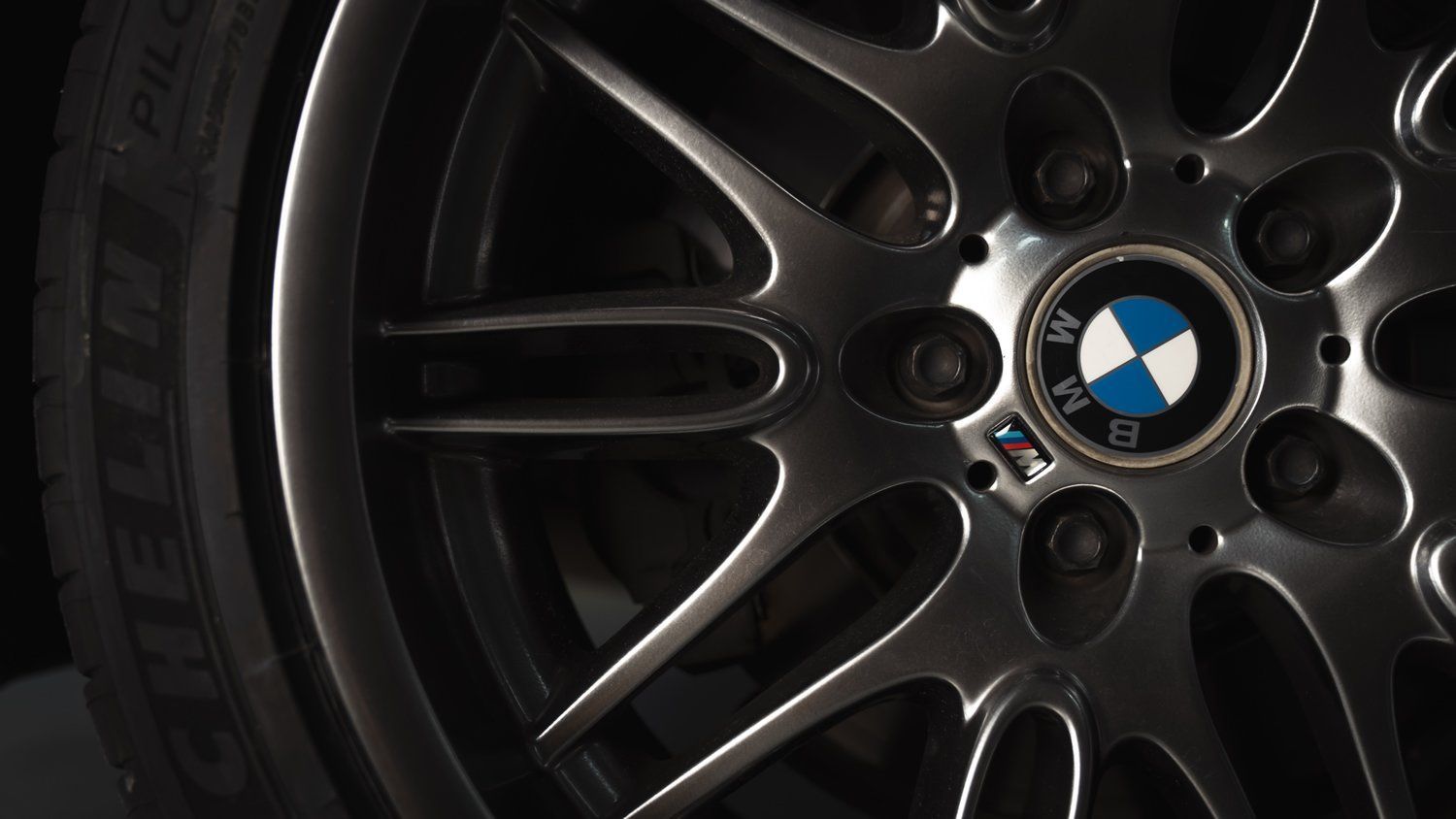How to Choose the Right Independent Repair Shop for Your Euro Car Cars.
C Deselle • December 20, 2024
Introduction
German vehicles, similar to most Euro Cars, are known for their sophisticated engineering, luxurious features, and top-notch performance. They are a prized possession for many automobile enthusiasts. Whether you drive a German powerhouse like a BMW or a Mercedes-Benz, an Italian beauty like a Ferrari or a Lamborghini, or any European car, you probably understand the importance of proper maintenance, timely repairs, and most importantly finding a trusted local independent repair shop to identify, repair & replace any failing parts or systems, and to help keep you on track with your vehicle’s maintenance schedules.
In this comprehensive guide, we will explore the key factors you should consider when selecting the perfect repair shop for you and your European vehicle.
Expertise and Experience
One of the most critical factors to consider when choosing a Euro repair shop is their expertise and experience in servicing your make & model vehicle. European cars are renowned for their complex systems and unique engineering and performance, and they require specialized knowledge and more importantly depth of experience for accurate diagnosis and repairs. Look for shops that not only have mechanics and technicians with factory-specific training from your car manufacturer, but more importantly have been working on these cars for at least 5-10+ years. The depth and breadth of experience a technician has is far more important than the fresh faced UTI graduates employed at most dealership service centers.
Here's a breakdown of the expertise and experience you should look for:
Specialization: The repair shop should have a specific focus on your make & model of European vehicles. European vehicles are known for their unique engineering, advanced technology, and complex systems. Mechanics who specialize in European cars are more likely to have the in-depth knowledge and experience required to diagnose and repair issues accurately.
Years of Experience: Inquire about the shop's years of experience working with European cars. A well-established repair shop with a history of servicing European vehicles is more likely to have encountered a wide range of issues and gained valuable experience in handling them.
Factory Training: Factory-specific training from the manufacturer of your Euro car brand is valuable. Mechanics who have undergone factory training in the early years of their training have had the advantage of working directly with the manufacturer's technologies, which can be helpful in more precise diagnoses and repairs.
Diagnostic Skills: European cars often come equipped with advanced diagnostic systems. Experienced mechanics should have the skills and tools necessary to perform thorough diagnostics and pinpoint the root causes of problems.
Specialized Tools and Equipment: Euro car repair requires specialized tools and equipment designed for European makes and models. Ensure that the repair shop is equipped with the latest technology to effectively address the specific needs of your vehicle.
Access to Technical Resources: Repair shops with access to technical resources and databases for Euro car brands can stay updated on repair procedures, recalls, and technical service bulletins issued by the manufacturers. This access ensures that your car receives the most up-to-date service.
Track Record: Investigate the shop's track record of successfully repairing and maintaining European cars. Positive customer reviews and testimonials can be an indicator of their competence and reliability.
Problem-Solving Skills: Euro cars can present complex and unique issues that may not be encountered with other vehicles. Experienced mechanics should possess problem-solving skills to address these challenges effectively.
Continuing Education: The automotive industry is constantly evolving, with new technologies and models being introduced regularly. A reputable Euro car repair shop should be sending its team to continuing education and training to stay current with the latest advancements in European car technology.
By choosing a Euro car repair shop with expertise and experience in these areas, you can trust that your vehicle will receive the specialized care it needs to maintain its performance, reliability, and safety standards. Always ask questions to ensure you're making an informed decision when selecting a repair shop for your European car.
Specialization in Your Car Make
Not all Euro car repair shops are created equal. Some may specialize in particular European car brands, while others offer a broader range of services. It's often advantageous to choose a repair shop that specializes in your car make, as they are more likely to have in-depth knowledge, specialized tools, and access to manufacturer-specific parts. Whether you own a Volkswagen, Audi, Porsche, or any other European brand, finding a shop that specializes in your car can lead to more accurate diagnostics and better service.
Reputation and Reviews
A Euro car repair shop's reputation can tell you a lot about the quality of their service. Start by asking for recommendations from fellow Euro car enthusiasts, friends, or family members who drive European vehicles. Online reviews and testimonials on platforms like Google, Yelp, or automotive forums can also provide valuable insights into a shop's reliability and customer satisfaction.
Pay attention to both the quantity and quality of reviews. A shop with a large number of positive reviews is a good sign, but be sure to read through them to gauge the specific experiences of customers with similar car models to yours.
Equipment and Technology
European cars come equipped with advanced technology and diagnostic systems. To properly service these vehicles, a Euro car repair shop must have access to state-of-the-art diagnostic tools and equipment. Ask the shop about the technology they use and whether they have the necessary tools for your car's make and model. A well-equipped shop can accurately diagnose issues and perform repairs more efficiently.
Here's a list of the equipment and technology that a reputable Euro car repair shop should have:
Diagnostic Tools: Euro cars are equipped with advanced onboard diagnostic systems. A quality Euro car repair shop should have access to diagnostic tools, such as OBD-II (On-Board Diagnostics) scanners and manufacturer-specific diagnostic equipment, to read and interpret fault codes and data from the vehicle's computer systems.
Specialized Scan Tools: Many European car manufacturers have proprietary diagnostic tools and software. The repair shop should have access to these specialized tools or software subscriptions to perform in-depth diagnostics and programming tasks.
Oscilloscopes: Oscilloscopes are used to visualize and analyze electronic signals in the car's systems. They are crucial for diagnosing electrical and electronic issues in European vehicles.
Wheel Alignment Machines: Euro cars often have precise handling and suspension systems that require accurate wheel alignment. A wheel alignment machine ensures that the vehicle's wheels are properly aligned for optimal performance and tire wear.
Engine and Transmission Diagnostic Equipment: Euro cars often feature high-performance engines and transmissions. Specialized equipment for diagnosing and servicing these components is essential for maintaining their reliability.
Air Conditioning Service Equipment: European cars may have complex climate control systems. Properly equipped repair shops should have the tools and equipment needed for diagnosing and servicing air conditioning and HVAC systems.
Electronic Service Information: Access to manufacturer-specific service information and repair manuals is crucial for ensuring that repairs and maintenance are performed correctly and in accordance with the manufacturer's guidelines.
Diagnostic Software Updates: Euro car manufacturers regularly release software updates to address known issues and improve performance. A reputable repair shop should stay up-to-date with these software updates and apply them as necessary during servicing.
Specialty Tools: European cars often have unique fasteners, components, and systems that require specialized tools for disassembly, repair, and reassembly. The shop should have access to a wide range of specialty tools for various Euro car makes and models.
Lifts and Hoists: Lifts and hoists are essential for accessing the underside of the vehicle for inspections, repairs, and maintenance. Euro car repair shops should have lifts designed to accommodate low-clearance vehicles and sports cars.
Quality Control and Testing Equipment: Before returning the vehicle to the owner, a reputable shop should perform quality control checks and testing to ensure that all repairs and services have been completed correctly and that the vehicle meets safety and performance standards.
By having access to these tools and equipment, a Euro car repair shop can provide comprehensive and high-quality service for European vehicles, ensuring that they are properly maintained and repaired to manufacturer standards. When choosing a repair shop, inquire about their equipment and technology to ensure they have the necessary resources to handle your specific Euro car make and model.
Warranty and Guarantees
Reputable Euro car repair shops often provide warranties or guarantees for their work. Inquire about the shop's warranty policies for both parts and labor. A warranty ensures that you have recourse if a repair doesn't meet the expected standards. Be sure to get all warranty terms in writing and understand the conditions and duration of coverage.
Access to Genuine Parts
Using genuine OEM (Original Equipment Manufacturer) parts is crucial for maintaining the performance and reliability of your Euro car. Ask the repair shop if they have access to authentic parts for your car make and model. Using genuine parts ensures that your vehicle's warranty remains valid and that you're getting the quality you expect.
Clean and Organized Facility
The appearance and organization of the repair shop can provide insights into their professionalism and attention to detail. A well-maintained and clean facility is more likely to have mechanics who take pride in their work and a management team committed to providing a top-notch customer experience.
Customer Service
Customer service is an often-overlooked but crucial aspect of choosing the right Euro car repair shop. You want a shop that values your business, communicates clearly, and is responsive to your questions and concerns. Consider the shop's friendliness, communication style, and willingness to explain repairs and recommendations in a way that you can understand.
Location and Convenience
Lastly, consider the shop's location and convenience. While it's essential to prioritize quality over proximity, a conveniently located repair shop can make your life easier when it comes to scheduling appointments and dropping off your vehicle. Additionally, inquire about their operating hours to ensure they align with your availability.
Conclusion
Owning a European car is a source of pride, and it deserves the best possible care. Choosing the right Euro car repair shop is a crucial decision that can impact the performance, longevity, and overall enjoyment of your vehicle. By considering factors such as expertise, specialization, reputation, equipment, warranties, pricing, parts, facility, customer service, and convenience, you can make an informed choice and entrust your beloved Euro car to capable hands.
German vehicles, similar to most Euro Cars, are known for their sophisticated engineering, luxurious features, and top-notch performance. They are a prized possession for many automobile enthusiasts. Whether you drive a German powerhouse like a BMW or a Mercedes-Benz, an Italian beauty like a Ferrari or a Lamborghini, or any European car, you probably understand the importance of proper maintenance, timely repairs, and most importantly finding a trusted local independent repair shop to identify, repair & replace any failing parts or systems, and to help keep you on track with your vehicle’s maintenance schedules.
In this comprehensive guide, we will explore the key factors you should consider when selecting the perfect repair shop for you and your European vehicle.
Expertise and Experience
One of the most critical factors to consider when choosing a Euro repair shop is their expertise and experience in servicing your make & model vehicle. European cars are renowned for their complex systems and unique engineering and performance, and they require specialized knowledge and more importantly depth of experience for accurate diagnosis and repairs. Look for shops that not only have mechanics and technicians with factory-specific training from your car manufacturer, but more importantly have been working on these cars for at least 5-10+ years. The depth and breadth of experience a technician has is far more important than the fresh faced UTI graduates employed at most dealership service centers.
Here's a breakdown of the expertise and experience you should look for:
Specialization: The repair shop should have a specific focus on your make & model of European vehicles. European vehicles are known for their unique engineering, advanced technology, and complex systems. Mechanics who specialize in European cars are more likely to have the in-depth knowledge and experience required to diagnose and repair issues accurately.
Years of Experience: Inquire about the shop's years of experience working with European cars. A well-established repair shop with a history of servicing European vehicles is more likely to have encountered a wide range of issues and gained valuable experience in handling them.
Factory Training: Factory-specific training from the manufacturer of your Euro car brand is valuable. Mechanics who have undergone factory training in the early years of their training have had the advantage of working directly with the manufacturer's technologies, which can be helpful in more precise diagnoses and repairs.
Diagnostic Skills: European cars often come equipped with advanced diagnostic systems. Experienced mechanics should have the skills and tools necessary to perform thorough diagnostics and pinpoint the root causes of problems.
Specialized Tools and Equipment: Euro car repair requires specialized tools and equipment designed for European makes and models. Ensure that the repair shop is equipped with the latest technology to effectively address the specific needs of your vehicle.
Access to Technical Resources: Repair shops with access to technical resources and databases for Euro car brands can stay updated on repair procedures, recalls, and technical service bulletins issued by the manufacturers. This access ensures that your car receives the most up-to-date service.
Track Record: Investigate the shop's track record of successfully repairing and maintaining European cars. Positive customer reviews and testimonials can be an indicator of their competence and reliability.
Problem-Solving Skills: Euro cars can present complex and unique issues that may not be encountered with other vehicles. Experienced mechanics should possess problem-solving skills to address these challenges effectively.
Continuing Education: The automotive industry is constantly evolving, with new technologies and models being introduced regularly. A reputable Euro car repair shop should be sending its team to continuing education and training to stay current with the latest advancements in European car technology.
By choosing a Euro car repair shop with expertise and experience in these areas, you can trust that your vehicle will receive the specialized care it needs to maintain its performance, reliability, and safety standards. Always ask questions to ensure you're making an informed decision when selecting a repair shop for your European car.
Specialization in Your Car Make
Not all Euro car repair shops are created equal. Some may specialize in particular European car brands, while others offer a broader range of services. It's often advantageous to choose a repair shop that specializes in your car make, as they are more likely to have in-depth knowledge, specialized tools, and access to manufacturer-specific parts. Whether you own a Volkswagen, Audi, Porsche, or any other European brand, finding a shop that specializes in your car can lead to more accurate diagnostics and better service.
Reputation and Reviews
A Euro car repair shop's reputation can tell you a lot about the quality of their service. Start by asking for recommendations from fellow Euro car enthusiasts, friends, or family members who drive European vehicles. Online reviews and testimonials on platforms like Google, Yelp, or automotive forums can also provide valuable insights into a shop's reliability and customer satisfaction.
Pay attention to both the quantity and quality of reviews. A shop with a large number of positive reviews is a good sign, but be sure to read through them to gauge the specific experiences of customers with similar car models to yours.
Equipment and Technology
European cars come equipped with advanced technology and diagnostic systems. To properly service these vehicles, a Euro car repair shop must have access to state-of-the-art diagnostic tools and equipment. Ask the shop about the technology they use and whether they have the necessary tools for your car's make and model. A well-equipped shop can accurately diagnose issues and perform repairs more efficiently.
Here's a list of the equipment and technology that a reputable Euro car repair shop should have:
Diagnostic Tools: Euro cars are equipped with advanced onboard diagnostic systems. A quality Euro car repair shop should have access to diagnostic tools, such as OBD-II (On-Board Diagnostics) scanners and manufacturer-specific diagnostic equipment, to read and interpret fault codes and data from the vehicle's computer systems.
Specialized Scan Tools: Many European car manufacturers have proprietary diagnostic tools and software. The repair shop should have access to these specialized tools or software subscriptions to perform in-depth diagnostics and programming tasks.
Oscilloscopes: Oscilloscopes are used to visualize and analyze electronic signals in the car's systems. They are crucial for diagnosing electrical and electronic issues in European vehicles.
Wheel Alignment Machines: Euro cars often have precise handling and suspension systems that require accurate wheel alignment. A wheel alignment machine ensures that the vehicle's wheels are properly aligned for optimal performance and tire wear.
Engine and Transmission Diagnostic Equipment: Euro cars often feature high-performance engines and transmissions. Specialized equipment for diagnosing and servicing these components is essential for maintaining their reliability.
Air Conditioning Service Equipment: European cars may have complex climate control systems. Properly equipped repair shops should have the tools and equipment needed for diagnosing and servicing air conditioning and HVAC systems.
Electronic Service Information: Access to manufacturer-specific service information and repair manuals is crucial for ensuring that repairs and maintenance are performed correctly and in accordance with the manufacturer's guidelines.
Diagnostic Software Updates: Euro car manufacturers regularly release software updates to address known issues and improve performance. A reputable repair shop should stay up-to-date with these software updates and apply them as necessary during servicing.
Specialty Tools: European cars often have unique fasteners, components, and systems that require specialized tools for disassembly, repair, and reassembly. The shop should have access to a wide range of specialty tools for various Euro car makes and models.
Lifts and Hoists: Lifts and hoists are essential for accessing the underside of the vehicle for inspections, repairs, and maintenance. Euro car repair shops should have lifts designed to accommodate low-clearance vehicles and sports cars.
Quality Control and Testing Equipment: Before returning the vehicle to the owner, a reputable shop should perform quality control checks and testing to ensure that all repairs and services have been completed correctly and that the vehicle meets safety and performance standards.
By having access to these tools and equipment, a Euro car repair shop can provide comprehensive and high-quality service for European vehicles, ensuring that they are properly maintained and repaired to manufacturer standards. When choosing a repair shop, inquire about their equipment and technology to ensure they have the necessary resources to handle your specific Euro car make and model.
Warranty and Guarantees
Reputable Euro car repair shops often provide warranties or guarantees for their work. Inquire about the shop's warranty policies for both parts and labor. A warranty ensures that you have recourse if a repair doesn't meet the expected standards. Be sure to get all warranty terms in writing and understand the conditions and duration of coverage.
Access to Genuine Parts
Using genuine OEM (Original Equipment Manufacturer) parts is crucial for maintaining the performance and reliability of your Euro car. Ask the repair shop if they have access to authentic parts for your car make and model. Using genuine parts ensures that your vehicle's warranty remains valid and that you're getting the quality you expect.
Clean and Organized Facility
The appearance and organization of the repair shop can provide insights into their professionalism and attention to detail. A well-maintained and clean facility is more likely to have mechanics who take pride in their work and a management team committed to providing a top-notch customer experience.
Customer Service
Customer service is an often-overlooked but crucial aspect of choosing the right Euro car repair shop. You want a shop that values your business, communicates clearly, and is responsive to your questions and concerns. Consider the shop's friendliness, communication style, and willingness to explain repairs and recommendations in a way that you can understand.
Location and Convenience
Lastly, consider the shop's location and convenience. While it's essential to prioritize quality over proximity, a conveniently located repair shop can make your life easier when it comes to scheduling appointments and dropping off your vehicle. Additionally, inquire about their operating hours to ensure they align with your availability.
Conclusion
Owning a European car is a source of pride, and it deserves the best possible care. Choosing the right Euro car repair shop is a crucial decision that can impact the performance, longevity, and overall enjoyment of your vehicle. By considering factors such as expertise, specialization, reputation, equipment, warranties, pricing, parts, facility, customer service, and convenience, you can make an informed choice and entrust your beloved Euro car to capable hands.
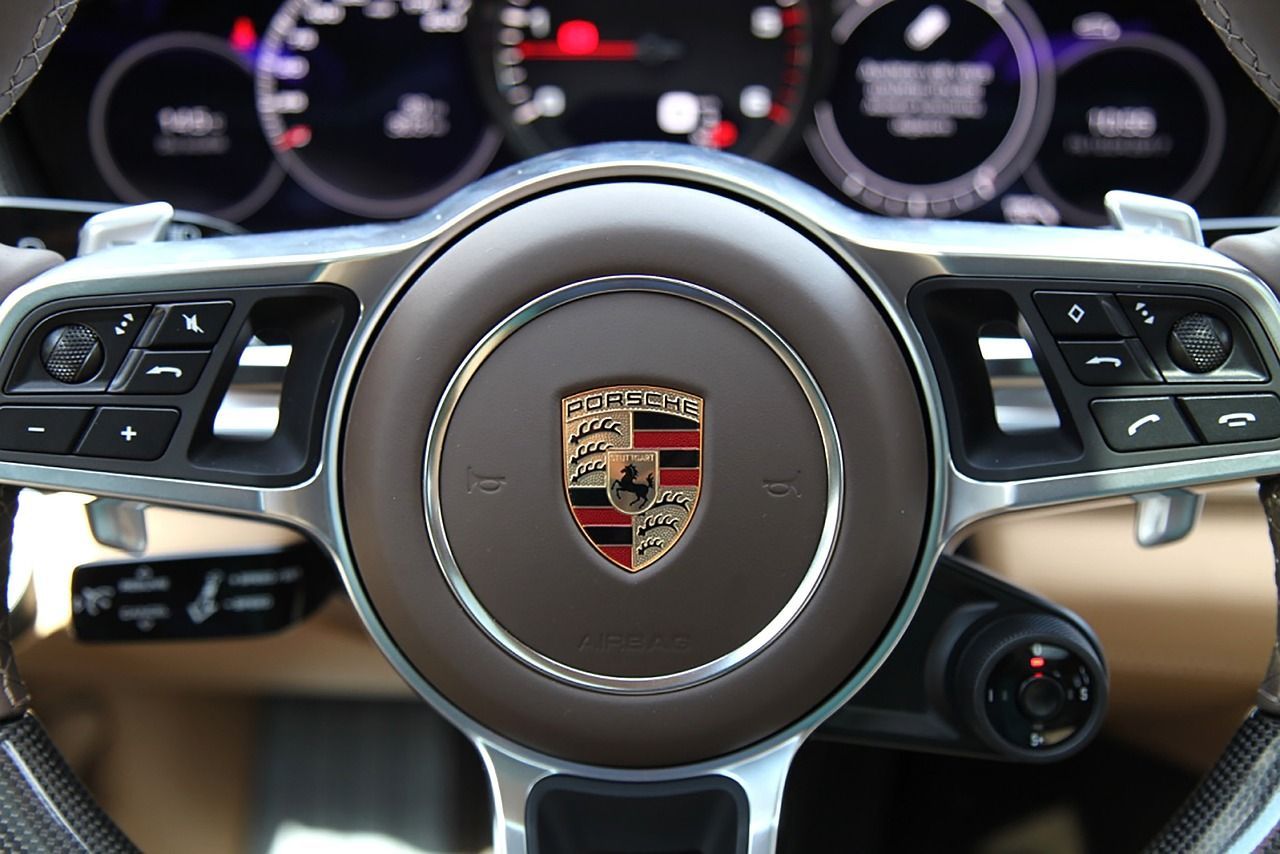
As a proud Porsche owner, you know your car is more than just a mode of transportation—it’s a masterpiece of engineering, performance, and luxury. However, like any high-performance vehicle, your Porsche is equipped with a variety of warning lights on the dashboard designed to keep you informed about its health. Understanding these lights is crucial for maintaining your Porsche in peak condition. This guide will walk you through the most common Porsche warning lights, explain what they mean, and provide guidance on the necessary actions to take when they appear. Why Warning Lights Matter Warning lights serve as your Porsche’s way of communicating potential issues, ranging from minor concerns to critical problems requiring immediate attention. These alerts can range from simple reminders, such as a low fuel warning, to serious issues like engine or braking system malfunctions. Ignoring these warnings can lead to costly repairs or even hazardous situations on the road. By understanding these indicators, you can take the appropriate actions to ensure your Porsche continues to run smoothly and efficiently. 1. Check Engine Light (CEL) What It Looks Like: A yellow or amber outline of an engine, sometimes with the word "CHECK." What It Means: This light indicates that the vehicle’s onboard diagnostics system has detected an issue. The cause could range from something minor, like a loose gas cap, to more serious problems, such as engine misfires, faulty oxygen sensors, or catalytic converter issues. What to Do: If the light is steady, schedule a diagnostic check as soon as possible. If it's flashing, it indicates a severe issue that requires immediate attention—pull over and have your Porsche towed to a repair shop to prevent engine damage. 2. Battery Warning Light What It Looks Like: A red battery icon. What It Means: This indicates that your Porsche’s battery is not charging properly, which could be due to a failing alternator, a weak battery, or corroded connections. What to Do: Reduce electrical usage and drive to a service center immediately. If the battery is completely discharged, your Porsche may not restart. 3. Brake Warning Light What It Looks Like: A red circle with an exclamation point inside or the word "BRAKE." What It Means: This could indicate low brake fluid levels, worn brake pads, or an issue with the braking system. What to Do: Check if your parking brake is engaged. If the light remains on, have your brakes inspected immediately at TMJ Bimmers to ensure safety. 4. Oil Pressure Warning Light What It Looks Like: A red oil can symbol with a drip. What It Means: Low oil pressure, which may result from low oil levels, a failing oil pump, or an oil leak. What to Do: Pull over immediately and check the oil level. If adding oil doesn’t resolve the issue, have your Porsche towed to a service center to prevent engine damage. 5. ABS (Anti-lock Braking System) Warning Light What It Looks Like: A yellow or amber circle with the letters "ABS." What It Means: There is an issue with your Porsche’s anti-lock braking system, which helps maintain control during hard braking. What to Do: While regular brakes may still function, have the ABS system inspected as soon as possible to avoid compromised braking performance. 6. Tire Pressure Monitoring System (TPMS) Light What It Looks Like: An exclamation point inside a horseshoe shape. What It Means: One or more tires are underinflated, which can impact handling and fuel efficiency. What to Do: Check tire pressure and inflate to the recommended levels. If the light persists, have the TPMS system checked. 7. Coolant Temperature Warning Light What It Looks Like: A red thermometer symbol. What It Means: Your Porsche's engine is overheating, possibly due to low coolant levels or radiator issues. What to Do: Pull over immediately, turn off the engine, and allow it to cool. Check coolant levels and top off if needed, but seek professional service if the problem persists. 8. Airbag Warning Light What It Looks Like: A person with an airbag in front. What It Means: There is a malfunction in the airbag system, which may prevent airbags from deploying properly in an accident. What to Do: Have the system inspected immediately to ensure safety. 9. Engine Temperature Warning Light What It Looks Like: A red thermometer submerged in liquid. What It Means: The engine is running hotter than normal, often due to low coolant, a failing water pump, or a faulty thermostat. What to Do: Pull over, allow the engine to cool, and check coolant levels. If the light stays on, have the vehicle towed to TMJ Bimmers to avoid potentially catastrophic engine damage. 10. Steering Wheel Warning Light What It Looks Like: A yellow or red steering wheel icon. What It Means: A problem with the power steering system, making steering more difficult. What to Do: Drive cautiously and schedule a service appointment. 11. Transmission Warning Light What It Looks Like: A gear with an exclamation point or the word "TRANS." What It Means: There is a problem with the transmission system, such as low fluid levels or mechanical failure. What to Do: Avoid hard accelerations and schedule a transmission inspection immediately. 12. Fuel Indicator Light What It Looks Like: A yellow gas pump icon. What It Means: Your fuel level is low, usually at 10-15% capacity. What to Do: Refuel as soon as possible to prevent running out and avoid damage to the fuel pump. Why Choose TMJ Porsche Specialists for Diagnostic Testing? While some warning lights may have simple solutions, others require expert diagnosis and repair. Porsches are complex, high-performance vehicles that demand specialized care. At TMJ Bimmers, we have the expertise and advanced equipment to accurately diagnose and repair any Porsche issues. Our team understands Porsche-specific systems, ensuring your vehicle receives the best possible care. Conclusion Understanding your Porsche’s warning lights is essential for keeping your vehicle in peak condition. By addressing these alerts promptly, you can prevent minor issues from escalating into costly repairs. If you’re unsure about a warning light or need expert advice, contact TMJ Bimmers Euro Car Care at 713.384.2273. We’re here to ensure your Porsche remains a top-performing machine on the road.

BMW is a brand synonymous with performance, luxury, and driving pleasure. But for those who crave an extra level of speed, precision, and adrenaline, BMW’s M-Series—often called “M Cars”—stands at the pinnacle of automotive excellence. If you’ve ever wondered what makes an M Car different from a standard BMW, this article will dive into its history, origins, various models, and what sets these high-performance machines apart. The Origin of BMW M Cars BMW M, short for BMW Motorsport GmbH, was established in 1972 as the performance division of BMW. Originally, the M division was created to support BMW’s racing efforts, developing high-performance engines, chassis, and aerodynamics to compete in various motorsport events. The first major success of BMW M was in racing, particularly with the legendary BMW 3.0 CSL, a car that dominated the European Touring Car Championship in the 1970s. The success of BMW’s racing program led to the idea of bringing motorsport technology to road cars, and thus, the M Series was born. The First M Car: The BMW M1 (1978) The first-ever BMW M car was the BMW M1 , introduced in 1978. Designed as a mid-engine supercar, the M1 was built for homologation purposes—meaning BMW had to produce road-legal versions of the car to compete in motorsport events. It featured a 3.5L inline-six engine producing 273 horsepower, an impressive figure for its time. However, due to production difficulties, only 453 M1s were ever made, making it one of the rarest and most collectible BMWs today. Evolution of the M Series: A Look at the Key Models After the M1, BMW shifted its focus to high-performance versions of its standard production models. Let’s take a look at some of the most iconic M cars throughout history. BMW M3 (E30, 1986-Present) The BMW M3 is arguably the most famous M car. It debuted in 1986 with the E30 generation as a homologation special for DTM (Deutsche Tourenwagen Masters) racing. The E30 M3 featured a high-revving 2.3L four-cylinder engine and a lightweight chassis, making it one of the best-handling sports sedans of its time. Since then, the M3 has evolved through multiple generations, with each one bringing more power and advanced technology. Modern M3s feature turbocharged inline-six engines and optional all-wheel drive, but they retain the spirit of precision and performance that made the original legendary. BMW M5 (E28, 1984-Present) The M5 is the high-performance version of the BMW 5 Series and is known as one of the fastest sedans in the world. The first M5 (E28) arrived in 1984 with a 3.5L inline-six engine producing 282 horsepower, making it the fastest production sedan of its time. Over the years, the M5 has continued to push the limits of performance sedans. The E60 M5 (2005-2010) is particularly notable for its 5.0L V10 engine, which revved up to 8,250 RPM and produced an exhilarating exhaust note. Today’s M5 models use twin-turbocharged V8 engines, offering immense power while still providing everyday luxury and comfort. BMW M4 (F82, 2014-Present) Introduced in 2014, the M4 replaced the M3 Coupe as the high-performance two-door variant. It featured a 3.0L twin-turbocharged inline-six engine, producing over 400 horsepower. The latest G82 M4 offers even more power, aggressive styling, and an available all-wheel-drive system for enhanced traction and performance. Other Notable M Cars BMW M2 – A compact, high-performance coupe that delivers the raw driving pleasure of early M3 models. BMW M8 – A luxury grand tourer with supercar levels of power and performance. BMW X5M/X6M – High-performance SUVs that blend speed with practicality. What Makes an M Car Special? While a standard BMW is already a great driver’s car, M Cars take it to another level. Here’s what makes them superior: 1. More Powerful Engines M Cars receive specially tuned engines that deliver significantly more power and performance. These engines often feature lightweight components, advanced cooling systems, and higher redlines compared to their standard BMW counterparts. 2. Enhanced Suspension & Handling BMW M models come with sportier suspensions, upgraded brakes, and precise steering. Many models also offer adaptive dampers, allowing drivers to adjust ride stiffness for daily comfort or track-ready performance. 3. Aerodynamic & Lightweight Construction M Cars often feature aggressive bodywork, including larger air intakes, rear spoilers, and carbon fiber components to improve aerodynamics and reduce weight. 4. Unique M Features & Design From M-specific steering wheels and sport seats to customizable drive modes and exclusive badges, BMW M models are designed to offer a more engaging and immersive driving experience. 5. Track-Ready Performance Whether it’s on the highway or the race track, M Cars are built to handle extreme driving conditions. Many models include features like launch control, drift modes, and high-performance tires. Why Choose an M Car Over a Regular BMW? For some drivers, a regular BMW is enough—but for those who want more excitement, an M Car is the ultimate choice. M Cars are built with enthusiasts in mind, offering sharper handling, better acceleration, and an overall more engaging driving experience. However, owning an M Car also comes with additional considerations. These high-performance vehicles require more specialized maintenance, premium fuel, and sometimes higher insurance costs. But for those who love driving, the added costs are well worth it. Final Thoughts BMW’s M-Series cars represent the pinnacle of the brand’s engineering and motorsport heritage. Whether it’s the legendary M3, the high-speed M5, or the track-focused M4, each M Car offers an unparalleled blend of performance, luxury, and driving excitement. If you’re considering stepping into the world of M Cars, be prepared for a thrilling ride! At TMJ Bimmers, we specialize in servicing and maintaining BMW M models, ensuring that your high-performance machine runs at its peak. Whether you need routine maintenance, performance upgrades, or repairs, our expert technicians are here to help. Call us at 713.384.2273 or book your service now https://sgenie.io/lreaa to keep your M Car in top shape!
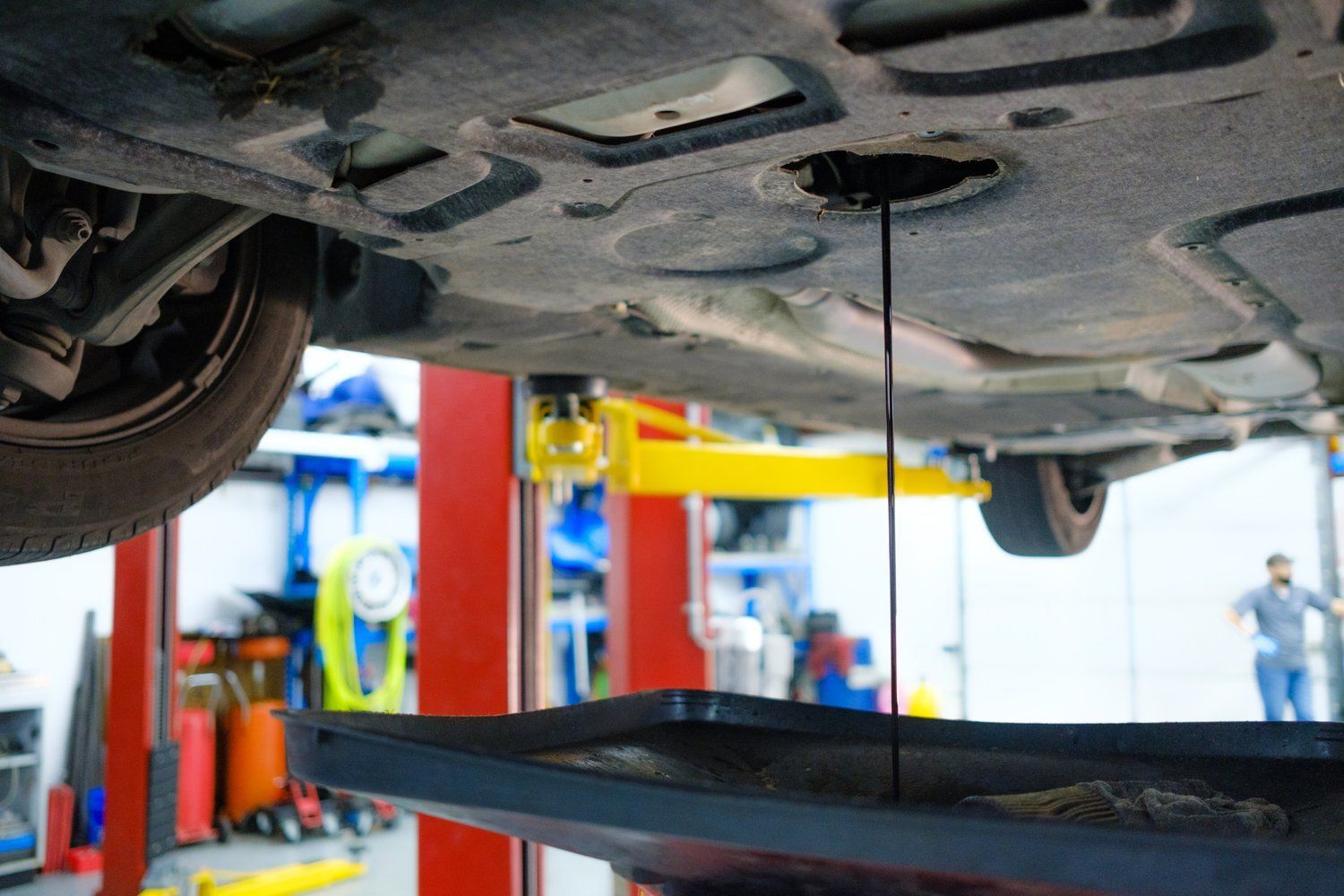
Oil leaks are one of the most common issues BMW owners encounter. While these leaks might seem like minor inconveniences, ignoring them can lead to costly repairs and potentially serious damage to your engine. At TMJ Bimmers, we’ve seen and repaired countless BMW oil leaks, and three culprits consistently top the list: valve cover leaks, oil filter housing gasket leaks, and oil pan gasket leaks. Let’s break down these issues, their causes, and how they can be resolved. 1. Valve Cover Gasket Leak What It Is: The valve cover sits on top of your BMW’s engine and seals the valve train. Over time, the gasket that seals the valve cover becomes brittle and starts to leak. This is particularly common in models like the BMW 3 Series, 5 Series, and X Series vehicles, especially those with higher mileage. Signs of a Problem: A burning oil smell due to oil dripping onto the exhaust manifold. Visible oil leaks around the top of the engine. Check engine light (CEL) due to misfires caused by oil seeping into the spark plug wells. Engine running rough or noticeable performance issues. Causes: High engine temperatures causing gasket material to degrade. Normal wear and tear due to age and usage. Improper installation or over-tightening during previous repairs. Waiting too long between oil changes; Extended oil change intervals leading to sludge buildup, which accelerates wear. Potential Consequences : If left unchecked, a valve cover gasket leak can lead to more severe problems, such as damaged ignition coils or fouled spark plugs. This can result in misfires, reduced fuel efficiency, and costly repairs. How We Fix It : At TMJ Bimmers, we replace the valve cover gasket with a high-quality OEM or aftermarket part, ensuring proper torque specifications to prevent future leaks. We also inspect the valve cover itself for cracks, which can occur on older models. After the repair, we thoroughly clean the area to remove any residual oil. 2. Oil Filter Housing Gasket Leak What It Is : The oil filter housing gasket seals the connection between the oil filter housing and the engine block. Over time, this gasket can deteriorate, leading to leaks. This issue is particularly common in turbocharged BMW engines, such as the N54 and N55. Signs of a Problem: Oil pooling near the front of the engine. Unexplained decreased oil levels between oil changes. Visible oil stains on the engine or driveway. Unusual engine noises caused by low oil pressure. Causes : Exposure to heat and pressure, which breaks down gasket material over time. Age-related wear, especially in vehicles with over 60,000 miles. Poor-quality replacement gaskets from previous repairs. Waiting too long between oil changes; Delayed oil changes causing sludge buildup around the gasket. Potential Consequences: Ignoring an oil filter housing gasket leak can cause engine components to wear prematurely. It can also lead to low oil pressure, which in extreme cases, can result in engine failure. How We Fix It: We’ll replace the failing gasket and thoroughly clean the area to ensure no residual oil remains. During the repair, we’ll inspect nearby components like the oil cooler gasket, as it’s often affected in tandem. Additionally, we check for oil contamination in the cooling system, which can occur if the issue is left unresolved for too long. 3. Oil Pan Gasket Leak What It Is: The oil pan gasket seals the oil pan to the bottom of the engine. This gasket can fail, especially in older or high-mileage BMWs. Vehicles that experience frequent stop-and-go driving or those exposed to harsh road conditions are particularly susceptible. Signs of a Problem: Oil spots on your garage floor or driveway. Visible oil dripping from the underside of the car. Low oil level warning on the dashboard. Increased oil consumption requiring frequent top-offs. Causes: Damage from road debris or impacts causing stress on the oil pan. Long-term wear and exposure to heat, which weakens gasket material. Over-tightened bolts leading to gasket compression and failure. Improper installation during previous repairs. Potential Consequences : An untreated oil pan gasket leak can lead to low oil levels, causing inadequate lubrication of engine components. Over time, this can result in excessive wear, overheating, and potentially catastrophic engine damage. How We Fix It: Replacing an oil pan gasket involves removing the oil pan, cleaning the mating surfaces, and installing a new gasket. This process requires precision and care, as improper installation can lead to further leaks. While the oil pan is off, we inspect for sludge or debris to ensure the engine stays in optimal condition. We also replace the engine oil and filter as part of the service. Why Do BMWs Experience Oil Leaks? BMWs are known for their precision engineering and high-performance engines. However, these characteristics also make them more prone to oil leaks due to: Higher operating temperatures compared to many other vehicles. The use of synthetic oil, which can expose weaknesses in gaskets over time. Complex engine designs with multiple gaskets and seals. Regular maintenance and timely repairs are key to keeping your BMW in peak condition. Why Choose TMJ Bimmers for Your BMW Repairs? Oil leaks are more than just a nuisance—they can compromise your engine’s performance and longevity. At TMJ Bimmers, we specialize in BMW maintenance and repairs, offering: Expertise : Our team is trained to diagnose and repair common BMW issues efficiently. High-Quality Parts : We use OEM and premium aftermarket parts to ensure durability and reliability. Transparent Communication : We’ll walk you through the repair process and provide clear, upfront pricing. Comprehensive Inspections : Every repair includes a thorough inspection to identify and address potential issues before they escalate. If you suspect your BMW has an oil leak, don’t wait for the problem to worsen. Contact us today at 713.384.2273 or visit tmjbimmers.com to book your appointment at our Houston shop to have your vehicle inspected. Let’s keep your BMW running smoothly and leak-free for miles to come!
